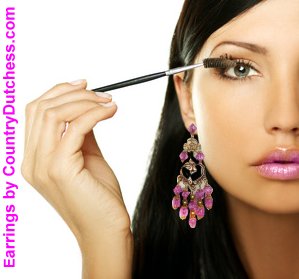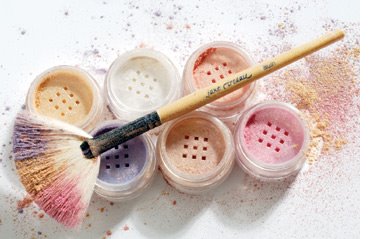No one knows why a woman gets breast cancer; but research shows late motherhood and the use of fertility drugs could increase the risk. Here's what you need to know.
By Colette Bouchez
It was back in November of 2004, when, as a nation still giddy with excitement over a presidential election, we learned Elizabeth Edwards, wife of a then- leading VP candidate John Edwards, was diagnosed with invasive ductal breast cancer, a particularly severe form of the disease.
Now, some six years later, we mourn her death, passing as she did last week at age 61, from complications arising from that original breast cancer which spread first to her bones and ultimately her liver.
While no one knows why any woman gets breast cancer, there are some factors that increase the risk. Among them is bearing children later in life, with some research suggesting the use of fertility drugs might play a role.
As such it begs the question, was Edwards – who became pregnant at age 48 and age 50 and has acknowledged the use of fertility medications - a victim of the very technology that is supposed to create life, and not end it?
"In light of what we now know about links between cancer and late-age pregnancy, and more recently, about hormone use and cancer, it's a valid question. Unfortunately, it's one that is, at best, difficult to answer," says Julia Smith, MD, director of the NYU Cancer Institute Breast Cancer Screening and Prevention Program and the director of the Lynne Cohen Cancer Screening and Prevention Clinic for High Risk Women at Bellevue Hospital Center, and Breast Cancer Preventive Care Program at the NYU Clinical Cancer Center.
What we know thus far: The risk of breast cancer naturally increase as a woman ages. Smith says it also rises in relation to the age at which a woman has her first child and her last child, beginning at age 30. “The older a woman is when she has her first baby and her last baby, the greater her risk of breast cancer in the future," says Smith.
According to news reports, Edwards was in her early 30s when her first two children were born -- a son, Wade, who passed away in an accident in 1996, and her daughter, Catherine, now 28. Edwards was approximately 48 when she became pregnant with her second daughter, Emma Claire, and about 50 when she conceived her son Jack.
While no one is certain exactly how Elizabeth Edwards conceived at such an advanced age, it has been reported her pregnancies were aided by the use of fertility drugs – hormone-based medications used to create multiple eggs and encourage the growth of a thick uterine lining necessary to sustain a pregnancy. And therein lies a second cause for cancer-risk concern.
Indeed, a growing number of doctors now worry that when you combine the intense estrogen overload associated with some fertility drugs, with the high estrogen levels that occur during pregnancy – all an age when a woman should naturally experience a decrease in these hormones - another breast cancer red flag appears.
“Right now we just don’t know if being hit with a blast of estrogen after years of decreasing levels increases the risk of breast cancer or if fertility drugs further fuel that risk. Women deserve to know, but we just don't have the answer yet, “ says Smith.
Some of what we do know, however, came to light via the massive Women’s Health Initiative study published in the Journal of the American Medical Association in 2002. Here research on some 16,000 women taught us that a combination regimen of estrogen and progesterone commonly used to treat peri menopausal and menopausal symptoms increases the risk of breast cancer in some women.
But does that risk profile apply to women roughly in this same age group taking similar hormones not to avoid hot flashes, but instead to have a baby?
“ We don't know one way or the other if there is an increased risk of breast cancer associated with taking fertility drugs thus far, the data has been conflicting. But it's certainly a question that needs to be addressed further, and certainly needs to be answered,” said Margareta Pisarska, MD, co-director of the Fertility Program at the Cedars Sinai Medical Center in Los Angeles appears to agree. “
Could GREEN FERTILTY Be The Answer?
Currently there is no definitive conclusion as to whether or not fertility drugs will increase a woman’s risk of breast cancer later in life. And while it may be some time before we know for certain, many fertility experts are not waiting around to find out.
Instead, they are moving forward with a rapidly growing movement known as “Green Fertility “ - a way of increasing a woman’s chances of conception, even women over 40, using all natural therapies. Alone or in combination with a brand new type of drug-free GREEN IVF, it could just be the safe, sane and possibly healthier alternative for the millions of women struggling with fertility issues.
Included in the green fertility treatment regimen are foods which focus on nutrients proven in studies to affect egg production and release in women and healthy sperm production in men; vitamin and nutrient therapy designed to balance hormones linked to common fertility problems; and specific types of exercise – like yoga - and a moderate weight maintenance program - all which studies have shown can boost fertility naturally.
Moreover, many “green” fertility doctors now also recommend a series of Chinese herbs, as well as acupuncture treatments to gently and safely encourage conception.
"Acupuncture works to restore the flow of Qi -- your essence, your body energy -- so with regards to infertility, treatment has a calming, restorative effect that increases a sense of well- being and ultimately helps the body to accept the creation of life," says acupuncturist Ifeoma Okoronkwo, MD, a professor of medicine at New York University School of Medicine.
While taking the “Green” approach to getting pregnant can help the tens of thousands of couples diagnosed with “unexplained infertility” doctors say there are some conception problems – like blocked fallopian tubes or uterine scar tissue in women - for which the “green” treatments are simply not enough on their own to help. When this is the case, the answer may lie in the new “GREEN IVF “ - a natural cycle fertility treatment that works without the need for fertility medications.
Indeed, instead of bombarding her body with fertility drugs and hormones to increase egg production and release, the new Green IVF relies on vitamins, nutrients, diet and exercise to encourage fertility and then uses traditional IVF techniques to harvest a single, naturally produced egg. The remainder of the IVF treatment remains the same.
“ According to John Zhang,M.D., Ph.D., director of the New Hope Fertility Clinic in New York City, the new natural cycle IVF is “ Ideal for women who choose to live a drug-free and chemical-free lifestyle, or for those women who, because of age or fertility problems, are less likely to produce multiple eggs, even if heavy IVF drugs are administered.”
But does it work? A number of studies show that it does! In research published recently in the journal Fertility and Sterility, doctors from Rome, Italy found that in women who previously did not respond well to IVF medications, were able to have a healthy “green fertility” implantation at a rate three times that of women who took traditional fertility medications.
The bottom line: Whether you have a family history of breast cancer, or simply want to avoid the use of fertility medications and encourage a faster, healthier pregnancy naturally, then the Green Fertility movement may be your answer.
For the latest health, beauty and style advice for women over 40 subscribe to RedDressDiary - It's Free! And be sure to check out CheapChicDiary.com for money saving beauty and style tips! Copyright by ElleMedia Network 2010 - All Rights Reserved. In addition to US Copyright, the text of this RedDressDiary article is licensed under a Creative Commons Attribution-ShareAlike 3.0 License. All formatting and style elements of this page are not available under this license, and Colette Bouchez retains all rights in those elements. The owners and creator of this blog may or may not benefit financially from the content of this presentation.




































